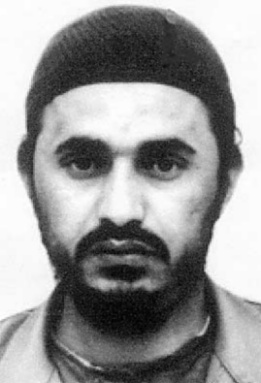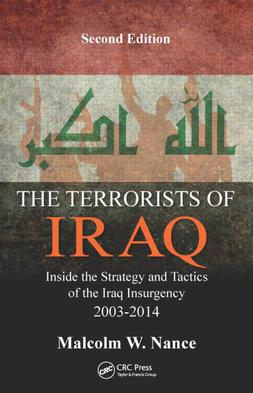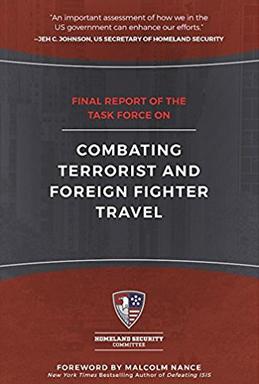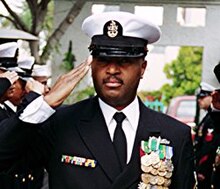
Al-Qaeda is a pan-Islamist militant organization led by Sunni Jihadists who self-identify as a vanguard spearheading a global Islamist revolution to unite the Muslim world under a supra-national Islamic state known as the Caliphate. Its members are mostly composed of Arabs, but also include people from other ethnic groups. Al-Qaeda has mounted attacks on civilian, economic and military targets of the US and its allies; such as the 1998 US embassy bombings, the USS Cole bombing and the September 11 attacks. The organization is designated as a terrorist group by NATO, UN Security Council, the European Union, and various countries around the world.

Osama bin Mohammed bin Awad bin Laden was a Saudi-born Islamic dissident and militant leader who was the founder and first general emir of al-Qaeda from 1988 until his death in 2011. Ideologically a pan-Islamist, his organization is designated as a terrorist group by the United Nations Security Council, the North Atlantic Treaty Organization (NATO), the European Union, and various other countries. He is most widely known as the mastermind of the September 11 attacks in the United States.

Ayman Mohammed Rabie al-Zawahiri, was an Egyptian-born militant and physician who served as the second general emir of al-Qaeda from June 2011 until his death in July 2022.
Michael F. Scheuer, is an American former intelligence officer for the Central Intelligence Agency, blogger, author, commentator and former adjunct professor at Georgetown University's Center for Peace and Security Studies. One assignment during his 22-year career was serving as Chief of the Bin Laden Issue Station from 1996 to 1999. He also served as Special Advisor to the Chief of Alec Station from September 2001 to November 2004.
Abu Musab al-Suri, born Mustafa bin Abd al-Qadir Setmariam Nasar, is a suspected Al-Qaeda member and writer best known for his 1,600-page book The Global Islamic Resistance Call. He has held Spanish citizenship since the late 1980s following marriage to a Spanish woman. He is wanted in Spain for the 1985 El Descanso bombing, which killed eighteen people in a restaurant in Madrid, and in connection with the 2004 Madrid train bombings. He is considered by many as 'the most articulate exponent of the modern jihad and its most sophisticated strategist'.
Religious fanaticism, or religious extremism, is a pejorative designation used to indicate uncritical zeal or obsessive enthusiasm that is related to one's own, or one's group's, devotion to a religion – a form of human fanaticism that could otherwise be expressed in one's other involvements and participation, including employment, role, and partisan affinities. Historically, the term was applied in Christian antiquity to denigrate non-Christian religions, and subsequently acquired its current usage with the Age of Enlightenment.

Jihadism is a neologism for militant Islamic movements that are perceived as existentially threatening to the West. It has been applied to various insurgent Islamic extremist, militant Islamist, and terrorist individuals and organizations whose ideologies are based on the Islamic notion of jihad. It has also been applied to various Islamic empires in history, such as the Umayyad Caliphate and the Ottoman Empire, who extensively campaigned against non-Muslim nations in the name of jihad.

Abu Musab al-Zarqawi, born Ahmad Fadeel al-Nazal al-Khalayleh, was a Jordanian jihadist who ran a terrorist training camp in Afghanistan. He became known after going to Iraq and being responsible for a series of bombings, beheadings, and attacks during the Iraq War, reportedly "turning an insurgency against US troops" in Iraq "into a Shia–Sunni civil war". He was sometimes known by his supporters as the "Sheikh of the slaughterers".

Islamic extremism, Islamist extremism or radical Islam refers a set of extremist beliefs, behaviors and ideology within Islam. These terms remain contentious, encompassing a spectrum of definitions, ranging from academic interpretations to the notion that all ideologies other than Islam have failed and are inferior. Furthermore, these terms may extend to encompass other sects of Islam that do not share such extremist views.

Hamza bin Osama bin Mohammed bin Awad bin Laden, better known as Hamza bin Laden, was a Saudi Arabian-born member of Al-Qaeda. He was a son of Al-Qaeda leader Osama bin Laden, and, following his father's death in 2011, he was described as an emerging leader of the Al-Qaeda organization.
Rita Katz is a terrorism analyst and the co-founder of the Search International Terrorist Entities (SITE) Intelligence Group, a private intelligence firm based in Washington, D.C.

Malcolm Wrightson Nance is an American author and media pundit. He is a former United States Navy Senior Chief Petty Officer specializing in naval cryptology.

Salafi jihadism, also known as revolutionary Salafism or jihadist Salafism, is a religious-political Sunni Islamist ideology that seeks to establish a global caliphate, characterized by the advocacy of "physical" (military) jihadist attacks on non-Muslim and (takfired) Muslim targets. The Salafist interpretation of sacred Islamic texts is "in their most literal, traditional sense", which adherents claim will bring about the return to "true Islam".
The Egyptian Islamic Jihad, formerly called simply Islamic Jihad and the Liberation Army for Holy Sites, originally referred to as al-Jihad, and then the Jihad Group, or the Jihad Organization, is an Egyptian Islamist group active since the late 1970s. It is under worldwide embargo by the United Nations as an affiliate of Al-Qaeda. It is also banned by several individual governments worldwide. The group is a proscribed terrorist group organization in the United Kingdom under the Terrorism Act 2000.

The Plot to Hack America: How Putin's Cyberspies and WikiLeaks Tried to Steal the 2016 Election is a non-fiction book by Malcolm Nance about the Russian interference in the 2016 United States elections. It was published in paperback, audiobook, and e-book formats in 2016 by Skyhorse Publishing. A second edition was also published the same year, and a third edition in 2017. Nance researched Russian intelligence, working as a Russian interpreter and studying KGB history.

Defeating ISIS: Who They Are, How They Fight, What They Believe is a non-fiction book about counterterrorism against ISIS. It was written by Malcolm Nance, a former cryptology analyst, with a foreword by Richard Engel. Its thesis is that ISIS is not part of Islam, instead, it functions as a separate destructive extremist group. He emphasizes the fact that the majority of those who have been harmed by ISIS are themselves Muslim. The book traces the history of the movement back to the history of Al-Qaeda in Iraq, and it also discusses ISIS's combat style and recruiting tactics. Nance offers a four-point plan to defeat ISIS, including airpower and special forces, Internet tactics, strengthening the Syrian military, and engaging Arab world states.

The Terrorists of Iraq: Inside the Strategy and Tactics of the Iraq Insurgency 2003–2014 is a nonfiction book about the Iraqi insurgency, written by U.S. Navy retired cryptology analyst Malcolm Nance. It was published by CRC Press in 2014. The book discusses the terrorist evolution of the Iraqi insurgency which led to the formation of Islamic State of Iraq and the Levant (ISIS). Nance cites the 2003 Iraq war by the Bush Administration for causing regional instability. He criticizes Coalition Provisional Authority leader Paul Bremer. The book emphasizes lessons the U.S. neglected to learn from the Vietnam War, the Iraqi revolt against the British, and the South Lebanon conflict. Nance writes in favor of the Iran nuclear deal framework by the Obama Administration, saying it is in the interests of all parties involved.

Terrorist Recognition Handbook: A Practitioner's Manual for Predicting and Identifying Terrorist Activities is a non-fiction book about counterterrorism strategies, written by U.S. Navy retired cryptology analyst Malcolm Nance. The book is intended to help law enforcement and intelligence officials with the professional practice of behavior analysis and criminal psychology of anticipating potential terrorists before they commit criminal acts. Nance draws from the field of traditional criminal analysis to posit that detecting domestic criminals is similar to determining which individuals are likely to commit acts of terrorism. The book provides resources for the law enforcement official including descriptions of devices used for possible bombs, a database of terrorist networks, and a list of references used. Nance gives the reader background on Al-Qaeda tactics, clandestine cell systems and sleeper agents, and terrorist communication methods.

Final Report of the Task Force on Combating Terrorist and Foreign Fighter Travel is a report about counterterrorism and foreign fighters in the Syrian and Iraqi Civil Wars by a bipartisan task force of the United States House Committee on Homeland Security, with a foreword by cryptology analyst and author Malcolm Nance. The work was released by the United States Government Publishing Office in 2015 as an unillustrated committee print, by the United States House Committee on Homeland Security in September 2015 in an illustrated edition, and as a paperback book in 2016 by Skyhorse Publishing. The report discusses United States citizens leaving their country to gain fighting experience in Iraq and Syria on the battlefield. It notes some linked up with the Syrian Civil War in order to attempt to remove Syrian leader Bashar al-Assad from power, later joining ISIS. According to the work, approximately 4,500 from the Western world left their countries to join ISIS, including over 250 American citizens. The report gives thirty-two recommendations to address the problem, including tactics to stop travels of battlefield soldiers to and from their countries of origin, ways to change executive branch policies, and methods to determine which individuals are planning terrorist activities.















